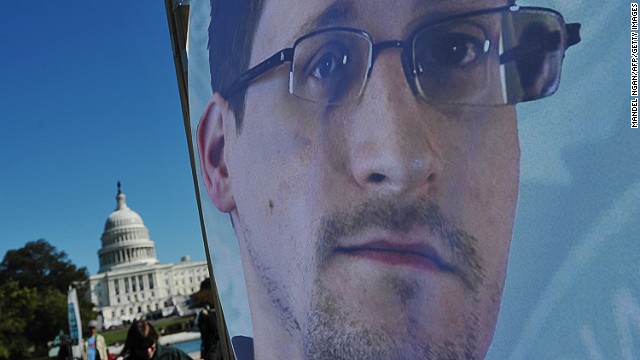Story highlights
- A Russian lawmaker says Russia will not push Snowden out
- Snowden wants to return home, but he wants protection from prosecution
- The U.S. government says clemency is not an option
Edward Snowden may stay in Russia longer than first thought.
Snowden has said the time isn't right for him to return to the United States, where he could face criminal charges for leaking classified information. Russia gave him asylum for a year.
Now Russia says it will continue to extend asylum protections to Snowden and won't send him back home.
That word came Friday from Alexy Pushkov, a legislator who is head of the Foreign Affairs Committee in the Duma, Russia's lower house. He spoke about Snowden at the World Economic Forum in Davos, Switzerland.
Russia's position basically buys Snowden more time as he mulls his next move.
Snowden has said he wants to return home but also wants whistle-blower protection. The U.S. government, meanwhile, says it will not offer clemency.
In an online chat Thursday, Snowden said that returning to the U.S. "is the best resolution for all parties," but "it's unfortunately not possible in the face of current whistle-blower protection laws."
He pointed out that the U.S. government's Whistleblower Protection Act doesn't cover someone like him, a former government contractor.
"There are so many holes in the laws, the protections they afford are so weak, and the processes for reporting they provide are so ineffective that they appear to be intended to discourage reporting of even the clearest wrongdoing," he wrote. "... My case clearly demonstrates the need for comprehensive whistle-blower protection act reform."
Snowden offered his remarks from Russia, where he's been since June, having been granted a one-year asylum. Pushkov's remarks appear to open the door to an extension of that asylum.
The U.S. government hasn't stayed silent on his case, either.
On Thursday, around the time that Snowden was answering questions online, Attorney General Eric Holder said that "if Mr. Snowden wanted to come back to the United States and enter a plea, we would engage with his lawyers."
The government would take the same tack with anyone willing to plead guilty, Holder said at an event at the University of Virginia's Miller Center.
But in Snowden's case, the attorney general insisted, "Clemency isn't something that we (are) willing to consider."







































